Blogging Against Disablism Day
Disablism is something is something new to me. Actually saying that now sounds ridiculous. It is true, I've come to realize, that until disability touches your life, most remain completely unaware of it (and yet many are guilty of it). As a parent of a disabled child, I'm slowly learning and seeing it in the world. I see it at times when other parents look at my child, I see it when some "professionals" give their opinion of her, and I even see it (although they have no clue of it) in the eyes of other kids on the playground. I am very aware that, unfortunately, this is only the beginning of my experiences with disablism. I hear from other parents who deal with it in their lives, with their older disabled children. I hear about it from disabled adults who face it on a daily basis. For those who feel disablism doesn't exist, you are sorely mistaken.
"DON'T STARE!!!"
That is what so many parents teach their children. Children are naturally curious about anyone who is different from them. Even a small infant may seem especially interested in seeing someone with glasses or with a different hair color, anything that is unlike their own parents. It is natural for a child to want to investigate. The first time they see a person in a wheelchair, for example, they are most likely thinking "wow, what is that cool chair with wheels?" Whether it is a walker, a guide dog, a wheelchair, someone flapping their hands--it's all curious to a child. So, they stare and observe. Upon noticing this, well-intentioned parents say those two words, in that tone, "DON'T STARE!!"
Most parents, having been raised with that same mindset, don't bother to explain differences or disabilities. They prefer to simply pull their child along and move on. Such a shame. A valuable life-lesson, lost. This message of don't stare, don't look, don't connect with "people like that" continues. I think often it's "innocent ignorance" on the part of parents, and how they too were raised. They're are afraid of the differences they see between themselves and a disabled person (differences are generally not embraced by society). They fear that if they ask a disabled person questions about their disability, that person will be offended. If we never open up a discussion, how will we ever understand one another? People sometimes seem awkward when my husband and I openly speak about autism, or even seizures and feeding tubes. It's not expected, we're not supposed to be open and honest about that sort of thing. This is not supposed to be dinner conversation. Except, it is. It is our life, and we want to educate you--we want to change your perception.
People have been told it's rude and improper to look, so how can they ever approach a disabled person? Trust me, there's nothing rude or improper to say "hello" to a disabled person, just as you would say "hello" to anyone else. Things like "how are you?" or "wild weather we're having" or "this line is ridiculous" and so on, will not offend a disabled person. I assure you. Granted, depending on the disability, a response may not be possible. But, have you lost anything by not even making the attempt, and by treating your fellow human being as just that--a fellow human being?
I was raised this same way. I do not fault my parents, they simply didn't know any better. They thought what they were doing was right. In middle school, I had major back surgery. I wore a cast that began just under my armpits, down my torso, and down one leg to the knee. After 6 weeks, the cast was replaced by a brace of the same size. About 2 months after that, the leg part of the brace came off. It was a months before I was without a brace. Following surgery, I slept in a hospital bed in our dining room, it had a trapeze on it so I could get myself on and off the bed. I had a commode that had to be kept in the laundry room. Our house was not friendly to me, the doorways and bathrooms were too small, my room was upstairs, getting outside required taking 4-5 steps to the front or back yards. My mother had to bathe me. I had a walker and a wheelchair. I remember being ashamed of it all--the cast, the commode, the walker. Part of it was just normal adolescent stuff. I wanted to be healthy, and to just be doing all the things my friends were doing. The other part, was that I felt I had lost my identity. People wouldn't see me--they'd see the cast (or brace), the walker, or the wheelchair. They would see what was wrong with me.
I learned many valuable lessons from that experience. I valued being able to move freely, like I never would have been capable of before my surgery, and will never lose sight of that. I valued privacy and independence, more than any of my friends could imagine. I valued my family even more, for all the support they gave me. I learned how to roll with life's punches, and make the best of it. I learned discipline, from grueling PT sessions. It took years for me to understand the emotions of that experience. I was too young to really understand it all--why I felt the way I did. As I grew up, I realized what I associated with the wheelchair, the special bed, etc. I saw it as weakness. I felt damaged. It took many years for my self-esteem to recover. Why did I feel those things?
Part of it was just my personality. I am stubborn, and I have a lot of pride. This was a challenge, one that I had little control over. I had to learn patience, and in the middle school years, let's face it--that's a tall order. The other part was, back again, to those early lessons and views on disabilities. I was the one I didn't want anyone to stare at. I didn't have a single friend come visit me--that was my choice. I shut myself in. I didn't want my friends to see the medical equipment, to see me in this big, bulky cast. I didn't want them to stare. It took a while for me to realize I was still the same kid. I still loved watching videos, playing games, and having fun. The cast or the wheelchair or any other equipment didn't change who I was on the inside.
It took that experience for me to realize that neither an ability nor a disability doesn't change who we are at the core. We're all human, we all have our likes and dislikes, we are all far more similar than we often think. It's sad to think that it was only being placed in that situation that changed me. From that moment on, I always felt a silent kinship to the disabled people I would pass on the street. I no longer stared at their equipment, at their differences. I saw a person.
I suppose my that was only part one of this lesson for me. I am now raising a beautiful, amazing, disabled child. As a parent of two children, one disabled, one not, I feel a two-fold responsibility (when it comes to disablism). My first, is to make sure my youngest child is respected, that she has the same rights as any other human being, and that she is appreciated for who she is.
For my eldest, it is to make sure I never say "DON'T STARE!" and end any communication about disability with that. I also make it my job that she learns to look past a disability. She has been "exposed" to more disabled kids than her peers, I would bet. From hospital visits, to doctors' appointments, to coming to some therapy sessions with us, she has seen many different disabled kids. I tell her that it's not nice to stare at someone, jut because they are different. Would she like it if in this world, people with blue eyes were considered "not normal" and so people often didn't talk to blue-eyed people like her, and most just stared? How would that make her feel? We are all different, I explain. Just like your sister's feeding tube, someone else may need a walker, or equipment to help them breathe, etc. That doesn't change who they are--they are just like you and I. Like your sister, they may have more challenges. But, it doesn't mean we can't be friends with them. And it certainly doesn't mean we can't be friendly toward them. You can say "hi" or wave, and you can look at a disabled child just like you would any other kid, but don't just stare, as that's rude. You wouldn't like it if someone was just staring at your sister because she is different, would you?
Growing up with a sister who has worn AFO's and has a feeding tube ("equipment," visual signs of disability) is a good starting point for my child to look past the disability. Living day in and day out with autism and seizures, offers a perspective and understanding like nothing else in the world. She and I have discussed many kinds of disabilities, with openness and honesty. This discussion will continue. I see the compassion my daughter has for her younger sister. I have no doubt that when she is an adult, she will not discriminate against disabled persons. She will see them for who they are, and value them, as she would any other individual.
I would ask every parent, next time you see your child staring at a disabled person, not to say "DON'T STARE!" If they are old enough, use that opportunity to open their minds. Don't be afraid, parents, of disabled persons. Whatever the disability that you see on the outside, look past it. They were born to this earth, same as you. Accept disabled persons, give them the respect and dignity you expect for yourself, and without hesitation, ensure that every person be afforded their human rights. Each and every human being has a gift. How sad if ignorance kept you from seeing all those gifts. Autism is referred to as a spectrum. I see the world quite similarly. It is an amazing collage, and all you need to is an open mind and willing heart to embrace all of its beauty.
5/1/08
On Disablism
Labels:
Advice,
Advocacy,
Human and Civil Rights,
Respect
Subscribe to:
Post Comments (Atom)
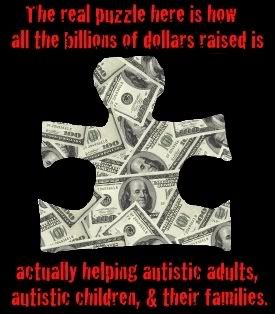
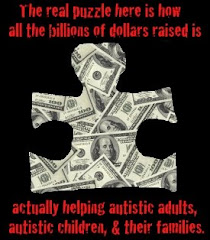



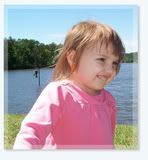

 This Way of Life
This Way of Life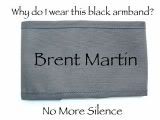

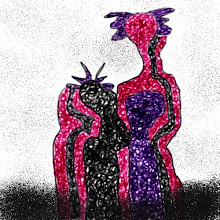

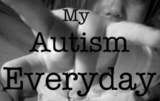





 "Autism is a way of being. It is pervasive; it colors every experience, every sensation, perception, thought, emotion, and encounter, every aspect of existence. It is not possible to separate the autism from the person."
- Jim Sinclair
"Autism is a way of being. It is pervasive; it colors every experience, every sensation, perception, thought, emotion, and encounter, every aspect of existence. It is not possible to separate the autism from the person."
- Jim Sinclair


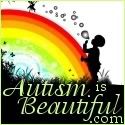
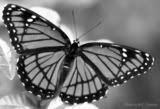
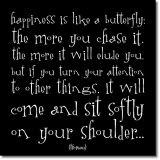


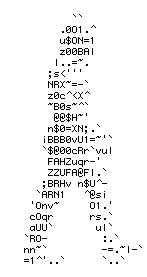
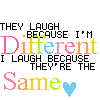
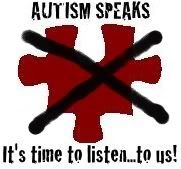
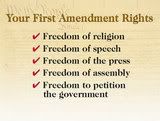



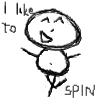

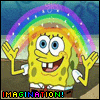

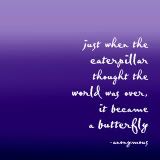



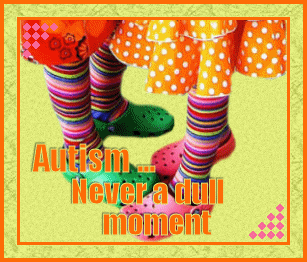

No comments:
Post a Comment